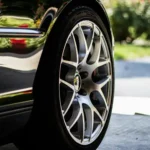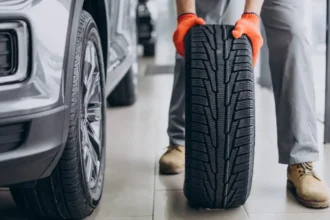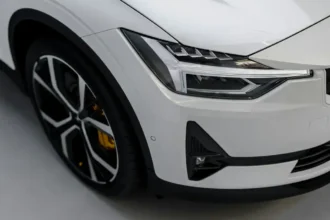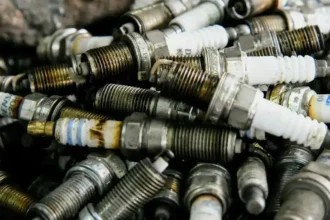Have you ever been cruising down the road, only to be jolted by an unfamiliar sound coming from your car? Whether it’s a gentle hum or a loud clunk, those car noises can signal a range of issues that might need immediate attention. Understanding these sounds can save you time and money, ensuring you stay safe and your vehicle runs smoothly. In this comprehensive guide, we’ll delve into the eight common car noises, what they mean, and the potential problems they indicate.
The 8 Common Car Noises and What They Mean

1. Squealing or Screeching Brakes
If you hear a squealing sound when you press the brakes, it’s often a sign that your brake pads are worn out. This noise is usually produced by a metal indicator attached to the pads, designed to alert you that it’s time for a replacement. Ignoring this sound can lead to more severe brake damage, so it’s best to address it promptly.
Common Problems:
- Worn brake pads
- Dust or debris on the brake rotor
- Low brake fluid
Action Steps:
- Inspect brake pads
- Clean rotors if necessary
- Replace brake pads if worn
Read More: How to Charge Your EV at Home: Step-by-Step Guide
2. Grinding Noise When Shifting Gears
A grinding noise when you shift gears, particularly in a manual transmission, may indicate that your clutch is failing or that the transmission fluid is low. This sound can lead to significant damage if not addressed quickly.
Common Problems:
- Failing clutch
- Low transmission fluid
- Worn synchronizers
Action Steps:
- Check transmission fluid level
- Inspect clutch for wear
- Visit a mechanic for transmission inspection
3. Rattling Noise Over Bumps
Hitting a bump and hearing a rattling noise can point to loose components in your vehicle’s suspension system. It may be due to worn-out shocks, struts, or loose exhaust components.
Common Problems:
- Worn-out shocks or struts
- Loose exhaust system
- Broken suspension components
Action Steps:
- Inspect suspension components
- Tighten any loose parts
- Replace worn shocks or struts
4. Hissing or Whistling Under the Hood
A hissing or whistling sound coming from under the hood, particularly after turning off the engine, could indicate a coolant leak or a vacuum leak. Both issues can lead to serious engine problems if not fixed.
Common Problems:
- Coolant leak
- Vacuum leak
- Overheating engine
Action Steps:
- Inspect coolant level
- Check hoses for leaks
- Visit a mechanic for further diagnosis
5. Clunking Noise When Turning
A clunking sound while making sharp turns could be a symptom of worn-out CV joints or issues with your vehicle’s differential. These components are crucial for smooth turns and handling.
Common Problems:
- Worn CV joints
- Differential issues
- Loose suspension components
Action Steps:
- Inspect CV joints for wear
- Check differential fluid level
- Have a mechanic evaluate the suspension
Read More: Tesla Model Y Review 2024: Is It Still the Best Crossover?
6. Bubbling or Gurgling in the Radiator
Hearing bubbling or gurgling noises in your radiator can suggest that your coolant is boiling due to overheating. This can result from low coolant levels or a malfunctioning thermostat.
Common Problems:
- Low coolant
- Faulty thermostat
- Radiator blockage
Action Steps:
- Check coolant levels
- Inspect thermostat operation
- Flush the radiator if necessary
7. Clicking Noise While Accelerating
A clicking sound when accelerating may indicate a problem with your engine or transmission. It could be due to low oil levels, faulty lifters, or even worn-out engine components.
Common Problems:
- Low engine oil
- Faulty lifters
- Worn engine components
Action Steps:
- Check and top off engine oil
- Inspect lifters for wear
- Consult a mechanic for engine evaluation
8. Whining Noise While Driving
A whining noise while driving, particularly when accelerating or turning, could signal a failing power steering pump or transmission issues. It’s crucial to address this sound to avoid further complications.
Common Problems:
- Failing power steering pump
- Low transmission fluid
- Worn transmission components
Action Steps:
- Check power steering fluid level
- Inspect transmission fluid level
- Seek professional help for further diagnosis
Common Car Noises and Their Meanings
| Car Noise | Potential Meaning | Common Problems | Recommended Action |
|---|---|---|---|
| Squealing Brakes | Worn brake pads | Worn pads, dust, low fluid | Inspect and replace brake pads |
| Grinding Gears | Clutch or transmission issues | Failing clutch, low fluid | Check fluid, inspect clutch |
| Rattling Over Bumps | Loose suspension components | Worn shocks, loose exhaust | Inspect suspension, tighten loose parts |
| Hissing/Whistling | Coolant or vacuum leak | Leak, overheating engine | Check coolant level, inspect hoses |
| Clunking When Turning | CV joints or differential issues | Worn joints, differential problems | Inspect CV joints, check differential fluid |
| Bubbling in Radiator | Overheating coolant | Low coolant, faulty thermostat | Check coolant levels, flush radiator |
| Clicking While Accelerating | Engine or transmission issues | Low oil, faulty lifters | Check oil levels, inspect lifters |
| Whining While Driving | Power steering or transmission issues | Failing pump, low fluid | Check fluid levels, seek professional help |
Frequently Asked Questions(FAQS)
Q1: How can I tell if a car noise is serious?
If a noise is persistent, changes with speed, or is accompanied by performance issues, it’s time to have it inspected by a professional.
Q2: Are all car noises a sign of trouble?
Not all noises are serious; some can be normal, but it’s essential to know your vehicle and recognize changes in sounds.
Q3: How often should I have my vehicle inspected?
Regular inspections every 6,000 to 10,000 miles or as recommended by your vehicle manufacturer can help prevent issues.
Q4: Can I ignore minor car noises?
It’s best not to ignore any car noises; they can be early warnings of more significant problems.
Q5: How can I prevent car noises?
Regular maintenance, timely repairs, and keeping your vehicle clean can help reduce car noises.
Q6: What should I do if I hear a strange noise?
Take note of when the noise occurs, what it sounds like, and have your vehicle inspected by a qualified mechanic.
Conclusion
Understanding car noises is crucial for maintaining the health of your vehicle. Recognizing the sounds and their meanings can save you from more significant issues down the road. If you hear any of the noises mentioned in this guide, don’t hesitate to investigate or seek professional help. Keeping your vehicle well-maintained ensures safer journeys and saves you money in the long run.








